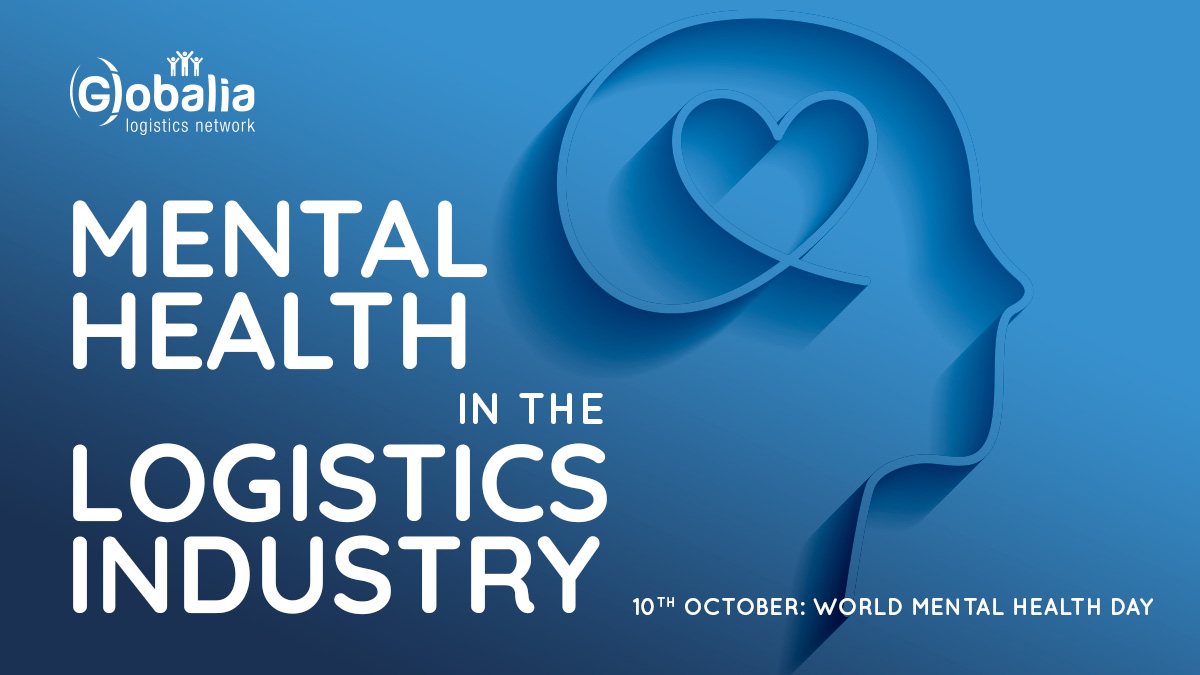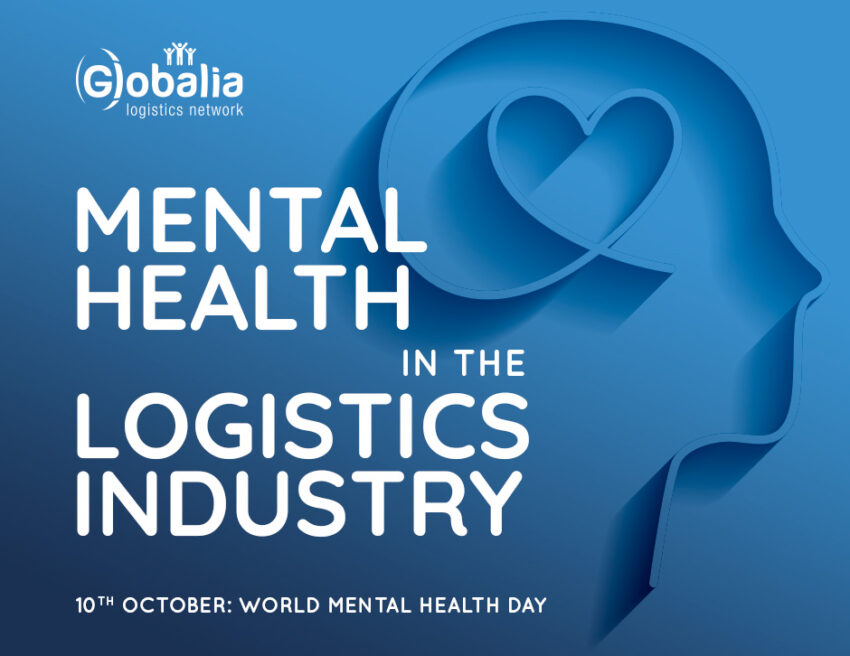As we observe World Mental Health Day, which is celebrated on October 10th each year, it’s important to take a moment to consider the mental well-being of those in industries that are often overlooked when discussing mental health—such as logistics. This year’s theme, “Mental health is a universal human right,” encourages us to break the stigma surrounding mental health and prioritize it across all sectors. For the transportation and logistics industry, where stress, long hours, and physical demands are common, mental health is not only a crucial personal concern but also a vital component of business sustainability and efficiency.

The High-Stress Nature of the Transportation and Logistics Industry
The logistics industry is the backbone of the global economy, ensuring the smooth transportation of goods across borders, between cities, and within industries. However, the very nature of the work is high-pressure and can contribute to mental health struggles. Tight deadlines, long hours on the road, delayed shipments, and managing the complexities of international supply chains are some of the daily challenges that logistics professionals face.
Truck drivers, warehouse workers, freight forwarders, and logistics managers are often working under immense pressure. Long hours on the road or in warehouses, combined with time away from family, isolation, and sometimes unpredictable schedules, can lead to anxiety, depression, and burnout. The physical toll of the job, paired with its mental demands, can result in chronic stress. Mental health needs in the logistics industry are urgent and real, yet often unspoken.
Impact on Job Performance and Business
Unmanaged mental health issues can have direct effects on job performance in the transportation and logistics industry. Workers under mental strain may struggle with concentration, decision-making, and handling complex tasks, all of which are crucial in logistics. For instance, a truck driver experiencing anxiety may have trouble focusing on the road, leading to potential safety risks. Similarly, warehouse employees under pressure may make errors in shipping or handling goods, leading to operational inefficiencies.
According to a recent international study conducted by UNI Global Union, Amazon’s performance monitoring system leaves employees feeling “stressed, pressured, anxious, like a slave, robot, and untrusted.” This first-of-its-kind survey of Amazon workers in key markets reveals that over half of those surveyed report the system has negatively impacted their physical health (51%) and mental well-being (57%).
Burnout is also a significant risk. Prolonged exposure to stressful working conditions without proper mental health care can lead to burnout, characterized by physical and emotional exhaustion. Burnout not only impacts the individual but can also disrupt entire supply chains, as companies may face increased absenteeism, lower productivity, and higher turnover rates.
For businesses, investing in the mental health of employees is a strategic move. Companies that prioritize mental well-being often see better employee retention, improved morale, and higher productivity. Ultimately, a mentally healthy workforce is more engaged, more resilient, and more likely to go the extra mile when needed, especially in a demanding field like logistics.
Common Mental Health Challenges in the Logistics Industry
There are several mental health challenges specific to those working in logistics. These include:
- Isolation and Loneliness: Many logistics professionals, especially truck drivers, spend long hours or even days alone. This isolation can lead to feelings of loneliness, which has been linked to depression and other mental health issues.
- Stress and Anxiety: Meeting tight deadlines, dealing with unforeseen delays, and managing unpredictable factors such as traffic, weather, or port closures can all contribute to heightened stress and anxiety levels.
- Work-Life Imbalance: With many logistics jobs requiring long hours or irregular schedules, it’s challenging for workers to maintain a healthy balance between work and personal life. This imbalance can lead to strained relationships and burnout.
- Fatigue: Working long shifts, especially for those in freight forwarding and transportation, can lead to chronic fatigue, which is linked to both physical and mental health problems, including depression and anxiety.
Addressing Mental Health in the Logistics Industry
Tackling mental health in the logistics industry requires both individual and organizational efforts. Employers have a responsibility to create an environment that supports the mental well-being of their workforce. This can include:
- Mental Health Awareness Programs: Employers should raise awareness about mental health, encouraging open discussions, and ensuring that workers feel comfortable seeking help without fear of stigma. Training supervisors to recognize signs of mental health issues is also essential.
- Access to Mental Health Resources: Providing access to mental health professionals, either through Employee Assistance Programs (EAPs) or partnerships with mental health organizations, can make a significant difference. Offering free counseling services or hotlines for employees to reach out to in times of stress can provide much-needed support.
- Promoting Work-Life Balance: Encouraging employees to take regular breaks, setting reasonable working hours, and respecting time off can reduce burnout. Flexible schedules and ensuring that employees have time to spend with their families or engage in hobbies can go a long way toward improving mental health.
- Improving Working Conditions: Creating a supportive working environment can help reduce stress. This can mean improving communication between managers and employees, ensuring workloads are manageable, and providing training on stress management techniques.
- Regular Mental Health Check-ins: Scheduling regular check-ins to assess the mental well-being of employees is crucial. This could be done through surveys, one-on-one meetings, or anonymous feedback systems, allowing workers to express concerns or suggest improvements.
Conclusion
World Mental Health Day serves as a reminder that mental health is a priority for everyone, including the logistics industry. The challenges faced by workers in logistics, from isolation to high stress, are unique but manageable with the right support systems. Prioritizing mental health in the workplace not only helps employees lead healthier, more fulfilling lives but also improves business outcomes by fostering a more engaged, productive, and resilient workforce.
As we continue to build a more connected and fast-paced world, ensuring the mental well-being of those who keep global supply chains moving is essential for the future of logistics. By taking action today, the logistics industry can help break the stigma around mental health and create a better, more supportive environment for all its workers.


